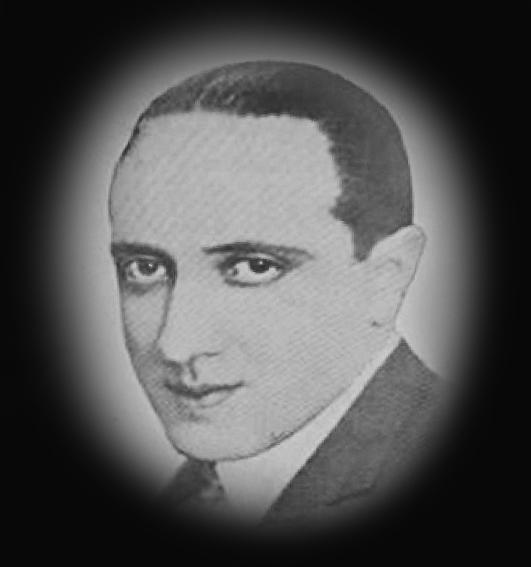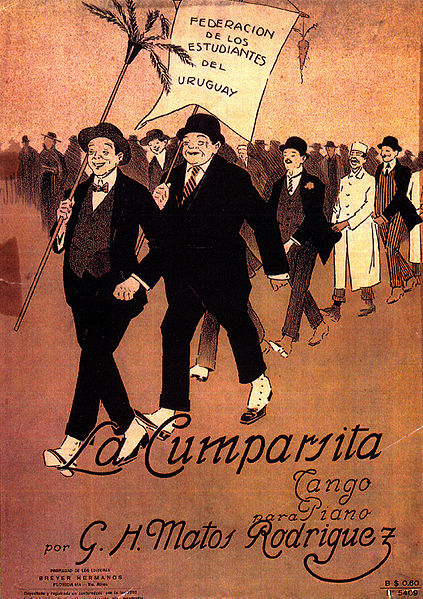<Back to Index>
- Composer and Pianist Gerardo Hernan Matos Rodríguez, 1897
PAGE SPONSOR


Gerardo Hernan Matos Rodríguez (March 28, 1897 – April 25, 1948) Montevideo, Uruguay, also known as Becho, was a Uruguayan musician, composer and journalist.
Gerardo Hernán Matos Rodríguez was born in Montevideo, the son of the owner of the Moulin Rouge, a popular local cabaret. He studied architecture, but did not complete the course. He began composing as a young student in 1917, and his first known work, La Cumparsita, which he wrote on the piano of the Federación de Estudiantes of Uruguay. It became one of the most recognizable tango pieces, though ironically, Matos was initially too shy to play the piece himself, and it became well known through the performance of others.
He traveled widely throughout Europe and stayed in Paris for a time, as well as working as Uruguayan consul to Germany. In 1931, he collaborated on the film score for Luces de Buenos Aires, shot in Joinville - le - Pont, France, and starring renowned tango vocalist Carlos Gardel.
His best known work for the tango is La Cumparsita. Some claim it is the most famous and recognizable tango of all time.
Rodríguez also composed pieces for theater plays premiered in Buenos Aires: Manuel Romero’s El Gran Circo Rivolta, among them. He led his own tango orchestra in Montevideo for a short time afterwards.
Other tangos of his include: “Che papusa, oí”, “Son grupos”, “Yo tuve una novia”, “Cuando bronca el temporal”, “Hablame”, “Pobre corazón”, “Haceme caso a mí”, “Canto por no llorar”, “Rosa reseca”, “Botija linda”, “El pescador”, “Te fuiste, ¡ja, ja!”, “Adiós Argentina”, “Mi provinciana”, “La milonga azul”, “Dale celos”, “Raspail”, “Mocosita”, “La muchacha del circo”, and “San Telmo”.
Rodriguez collaborated with the lyricists Enrique Cadícamo, Victor Soliño, Juan B.A. Reyes, Manuel Romero and Fernán Silva Valdés. With the latter he wrote a fine and touching series of Canciones Montevideanas ("Songs of Montevideo"), to which "Margarita punzó" belongs.
He died in Montevideo after a long illness, in 1948.